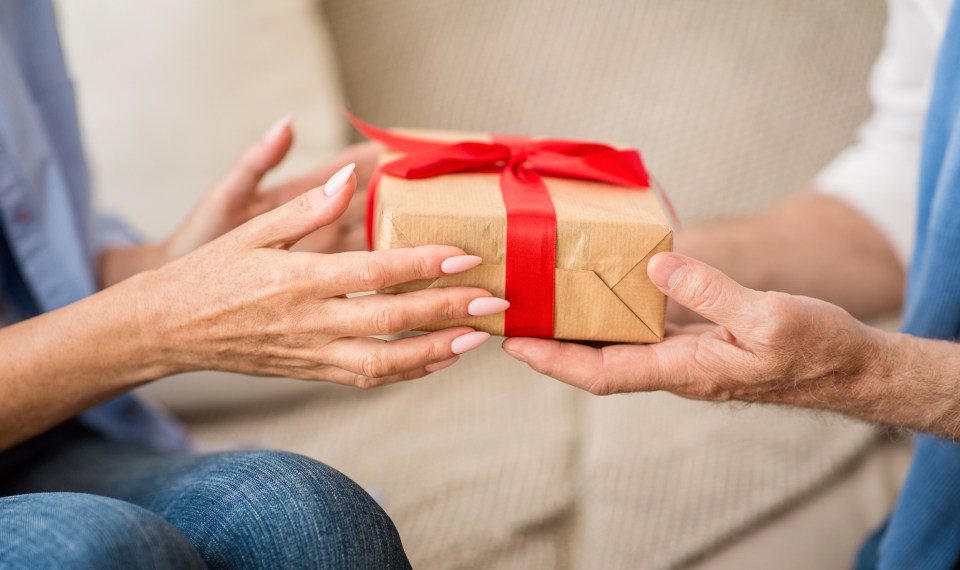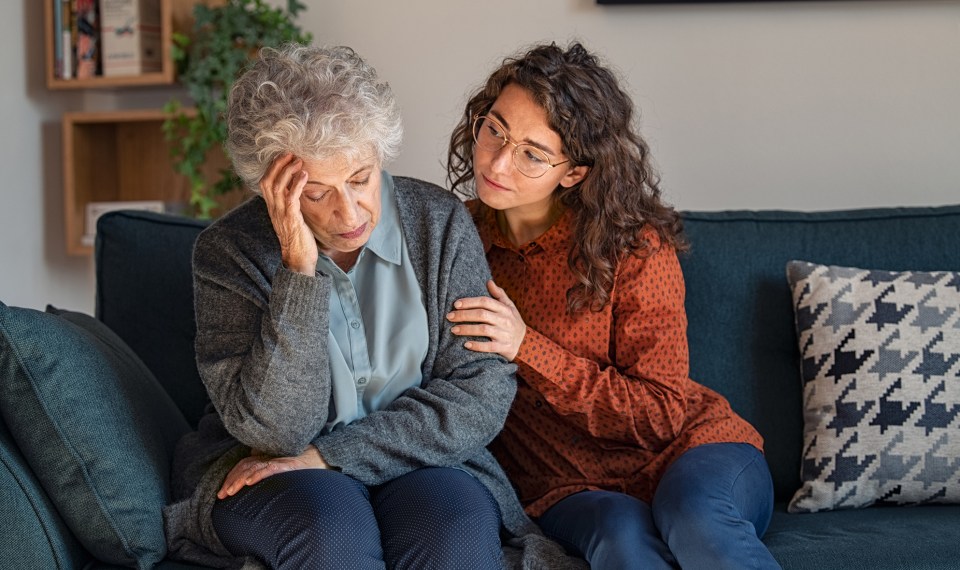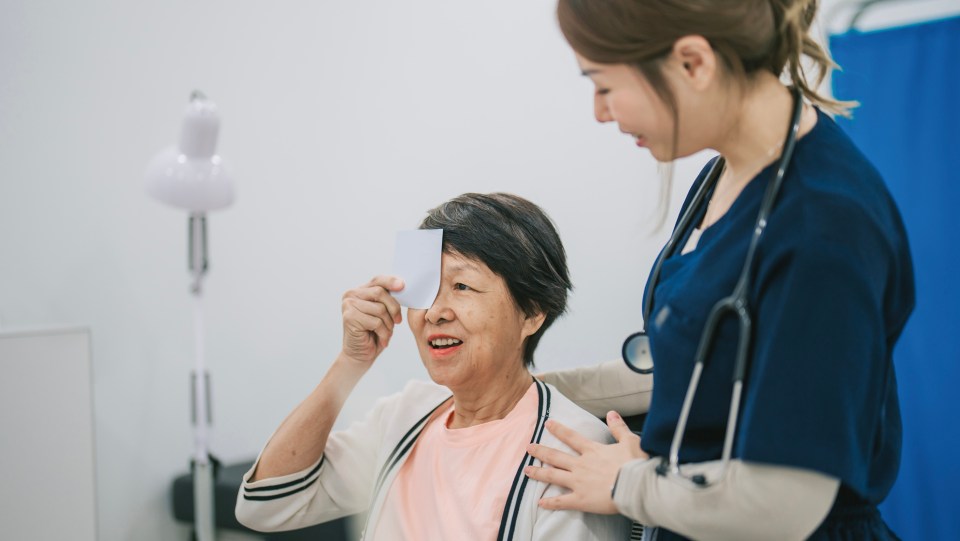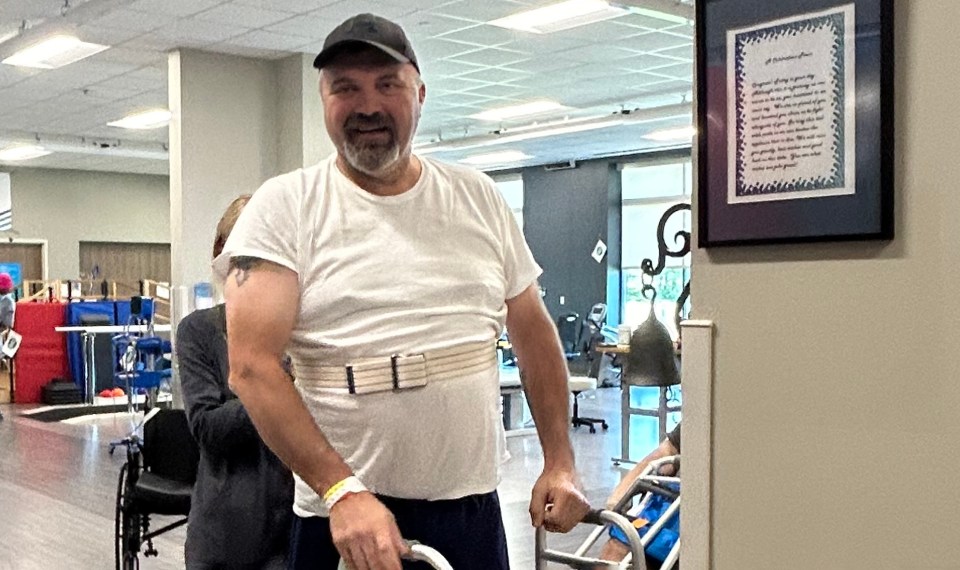Gift giving is challenging in most circumstances, but if your loved one is recovering from a stroke, you may find it even more difficult to find gifts that are both meaningful and useful to them.
After a stroke, your loved one may still be experiencing many of the physical and cognitive deficits caused by the condition, but there are gifts that can support their recovery and bring them joy.
As a leading provider in stroke rehabilitation, Encompass Health therapists work daily to help stroke survivors regain their independence and get back to those activities that were meaningful to them before their stroke. Some of them offer their gift suggestions that can help your loved one recovering from a stroke continue in their recovery while also feeling cherished and appreciated.
Gifts to Support Everyday Activities
Cheryl Miller is vice president of therapy operations for Encompass Health and is an occupational therapist by trade. As the leader of therapy operations for the company, she is always looking for solutions to help those recovering from an illness such as stroke get back to their everyday activities. She offers the following gift ideas to do so:
- Magnifying glass. Partial vision loss after stroke is a common side effect. A magnifying glass can help your loved one read medication labels or books and magazines.
- Jar opener. Many people recovering from a stroke experience limited mobility or one-sided paralysis or weakness. This can make what were once simple tasks, such as opening a jar, extremely difficult. A jar opener can assist them in getting back to this task.
- Ring or Nanny Cam. This gift is two-fold. A camera can help your loved one see who is at the door; it can also help you check in on them if you are away or caregiving from a distance.
- Wearable devices. Wearable devices have become more and more sophisticated. The Apple Watch can even detect falls or changes in heart rate.
- Fitness trackers. Walking after a stroke can be challenging. A fitness tracker, such as a FitBit, can count steps and help your loved set goals for how many steps they take in a day.
- Stationary floor peddler. These mini-exercise bikes can be used while your loved one watches their favorite show while exercising at the same time. The circular motion can help them build muscle, which can also help them with balance and strength.
- Rollator walker. If walking long distances is challenging for your loved one, a rollator walker can help support them while also providing them a place to sit should they need a break.
Gifts for Comfort and Cognition
Stacy Thomashaw is a speech language pathologist and director of therapy innovations for Encompass Health. With a stroke, individuals often experience memory loss and cognitive issues. These gifts can not only help with those concerns, but also provide them with a little comfort and joy.
- A personalized photo book. This is an excellent gift to fill with memories from family gatherings, travels and other special milestones. This gives your loved one a tangible way to reminisce.
- A digital picture frame. Preload the digital frame with family photos and videos so your loved can enjoy a rotating display of fond memories. Many models allow a remote upload option, making it easy for family and friends near and far to add pictures.
- A memory journal or guided memoir book. This is a meaningful way to document your loved one’s life stories and wisdom. It’s also a great way to preserve their memories for future generations.
- A senior-friendly tablet. There are a variety of tablets designed with older adults and those with disabilities in mind. Look for one with accessibility features, such as enlarged text and helpful apps. This can be a wonderful way for your loved one to stay connected with friends and family.
- An experience gift. Perhaps the best gift of all is spending time with your loved one. Surprise them with tickets to a show or make reservations for a special meal. A simple day with family and friends can produce cherished memories for all.
Gifts of Function and Mobility
Chris Daughtery is an occupational therapist and director of therapy operations at Encompass Health Rehabilitation Hospital of Greenville in South Carolina. He pursued a career in occupational therapy after an accident left him with a T4 spinal cord injury. He has spent the years since his accident helping his patients adapt to their lives after a serious injury or illness, including a stroke. He suggested the following gifts:
- Ergonomic key turner. Grasping and turning a key may seem simple, but after a stroke it can be challenging. An ergonomic key turner fits over the top of the key, making it easier to grasp and turn.
- Wheelchair/walker/rollator accessories. If your loved one is in a wheelchair or using a walker or rollator, there are a variety of accessories that will help them. A rotating phone holder can help them view their phone hands free at any angle while in their wheelchair. This wheelchair blanket is the perfect size and includes straps to secure it, so it doesn’t get caught in the wheels. It also has pockets to store personal items or keep your loved one’s hands warm. A cupholder and storage bags are available for wheelchairs, walkers and rollators and allow the individual to stay hydrated on the go while also conveniently storing their personal items.
- Auto Cane Portable Vehicle Support Handle Car Door Assist Bar. This car door assist bar can support up to 300 pounds and can help your loved one get in and out of a vehicle.
- Ergonomic water bottle opener. These devices fit over the top of your water bottle making it easier to grasp and turn to open.
- Hand massager. CINCOM makes a cordless hand massager with heat and compression, which can help ease any pain your loved one might be experiencing in their hands and give them a needed break.
The content of this site is for informational purposes only and should not be taken as professional medical advice. Always seek the advice of your physician or other qualified healthcare provider with any questions you may have regarding any medical conditions or treatments.



